We've gone Pink to help fight Breast Cancer.
Use code "BREAST" and we'll Donate $50 to National Breast Cancer Foundation
Main Menu
Petsy Breed Pages
The world’s most comprehensive information on the ...
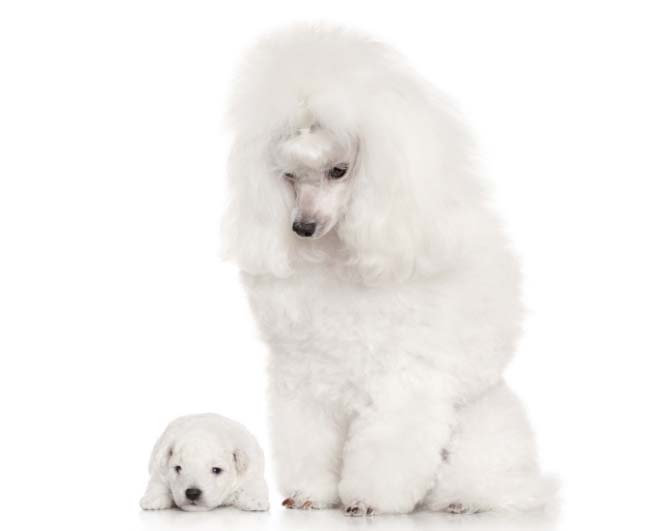
$2200.00 - $5000.00
Caniche, Barbone, Chien Canne, Carniche Moyen, Barboncino Miniatura, French Poodle, Pudle, Zwergpudel
Medium
Non-Sporting Group
Short
Medium
Medium
13 to 15 years

Would you like to know what it would cost to insure an Miniature Poodle? Find out by getting a free quote, with petsy pet insurance.





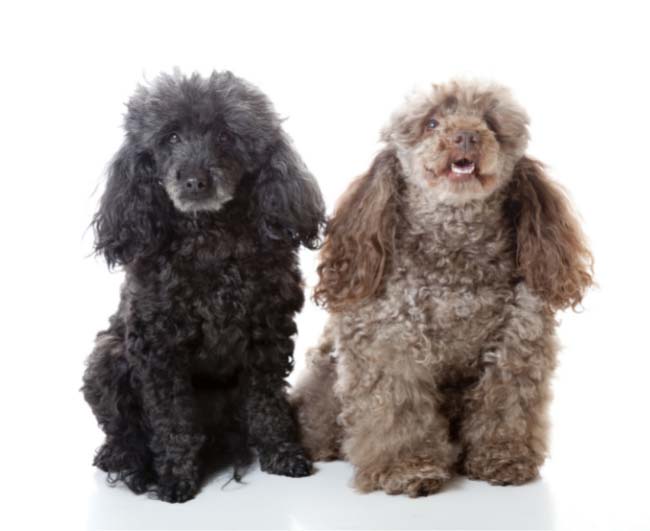
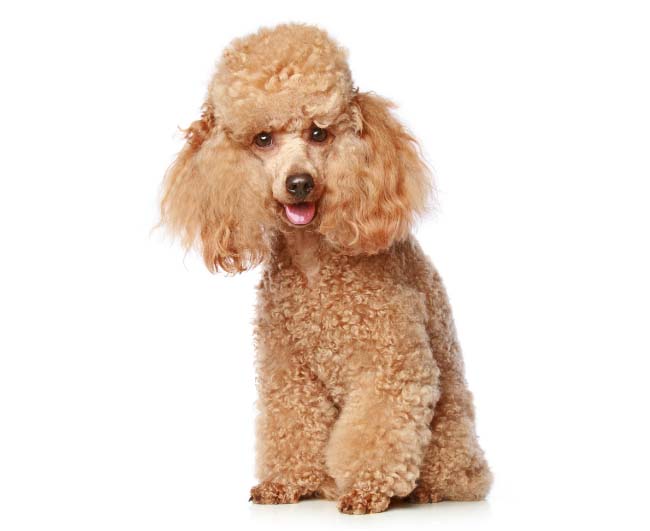

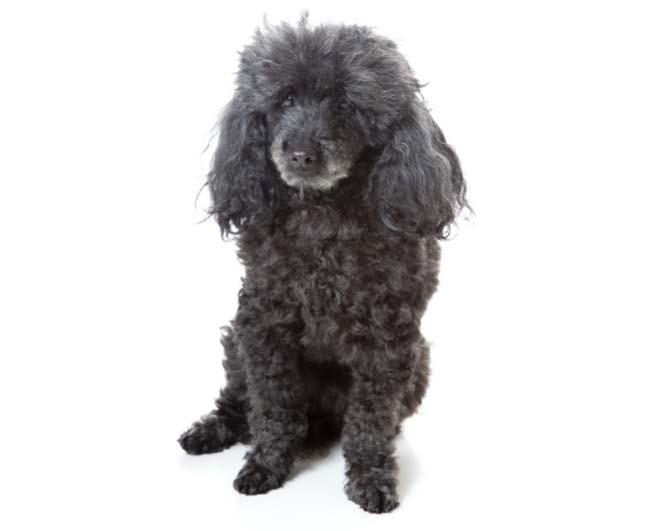
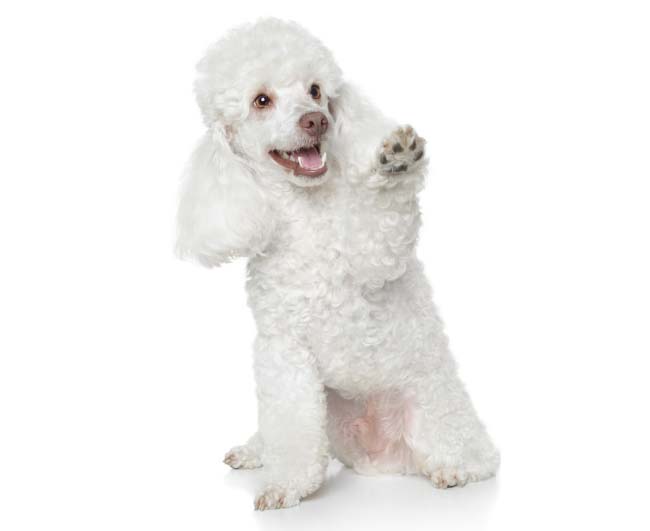
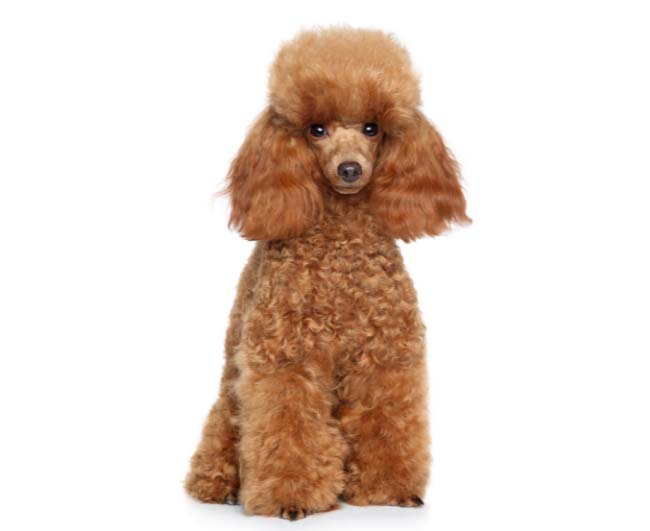

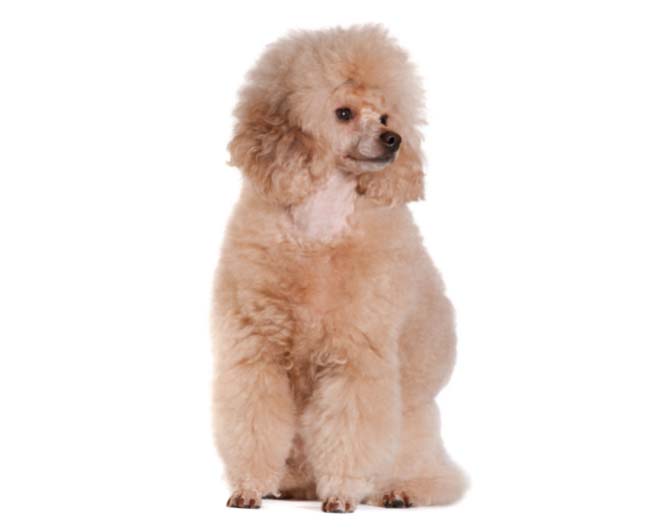
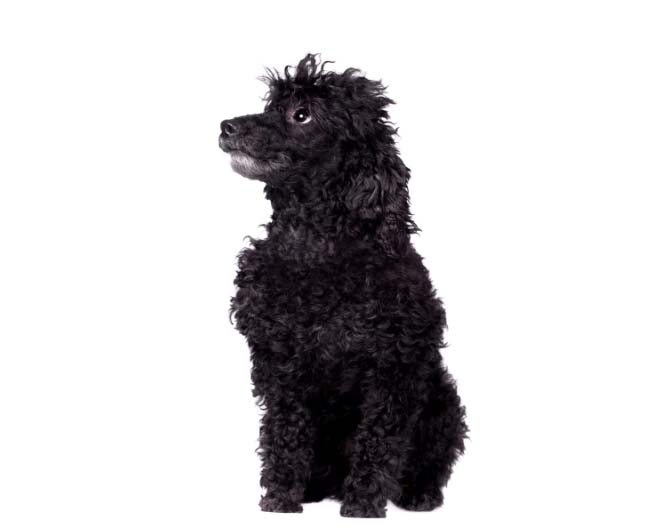
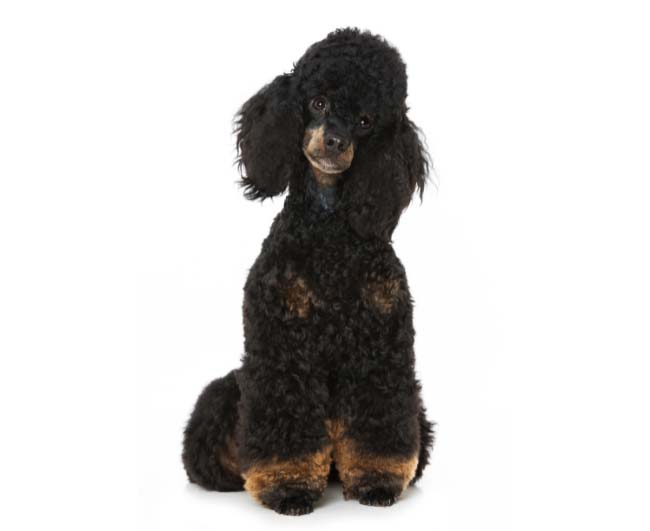
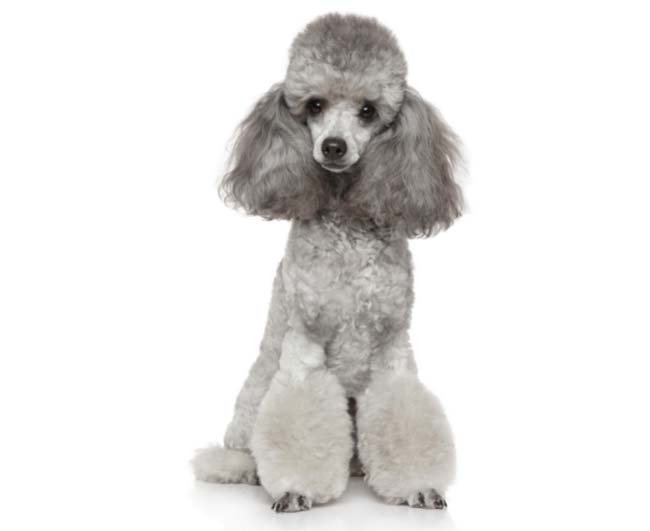
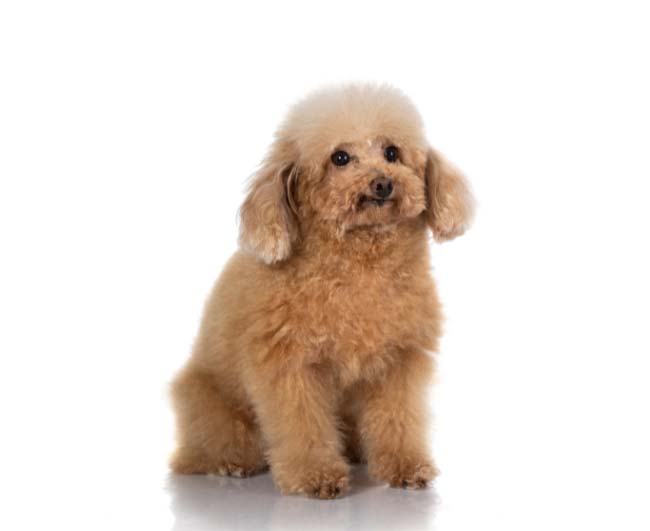

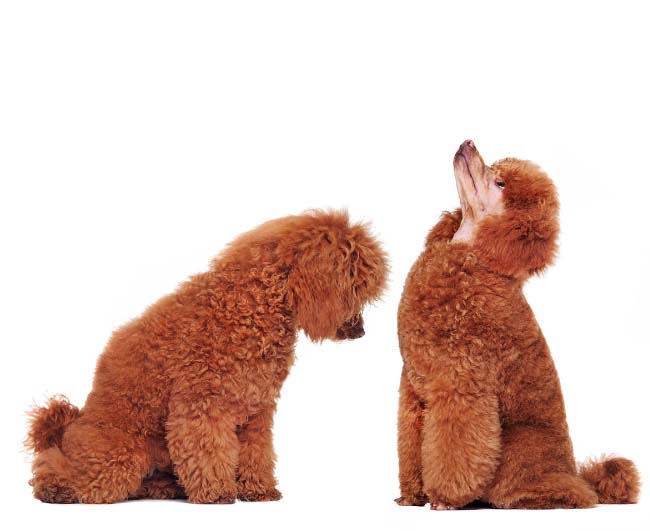
Miniature Poodle come in a variety of colours, including Apricot, Blue + Brown and White, Blue , White, Brown, Brown, Cream, Black, Black and Tan, Silver, Brown, White, Red.


How much do
Miniature Poodle eat?
0.50 to 1.00 cups of food a day

How much
exercise do they need?
40 to 60 Mins

Are they kid friendly? Miniature poodles tend to be very high strung and not suitable for families with children

Do they need a lot of space? They don't need a lot of space
Patellar Luxation
Legg-Perthes Disease
Hip Dysplasia
Heart murmurs
At least 1.5 to 3 cups of high-quality dry food a day, split into two meals, is recommended for miniature poodles to consume regularly?3/4 to 1 cup for miniatures; 1/4 to 1/2 cup for toys. The kind of dog food you buy makes a difference as well. If overfed, the poodle, like every other dog, can gain weight, leading to joint injuries and other health issues. Limit sweets, keep him busy and feed him at regular intervals rather than keeping food out all the time.
Many Miniature or Toy Poodles owners owe their dogs table scraps, but if you give in to those begging eyes, you'll end up with a picky eater. He'll turn down dog food, even if it's better for him.
The Miniature Poodle has a wool coat that resembles that of a sheep and does not shed. As a result, his hair will grow as long as you want it to. Every four to six weeks, the Poodle should be trimmed. If you don't wash and comb his coat often enough, it can get matted and need shaving. It's a good choice for allergy sufferers because of the breed's low shedding fur. Although all dog breeds shed, the Poodle has a reputation for being a low-shedding breed, particularly heavy shedders like the Golden Retriever and Alaskan Malamute.
Although Miniature Poodle coats do not shed, they take professional care to keep them looking their best. Their coats need clipping every six to eight weeks, as well as brushing daily in between clippings. Their coats should be groomed once a week at the very least.
Ears of Miniature Poodles must be cleaned regularly to avoid contamination. It's also a good idea to brush your teeth every day to prevent tartar buildup and gingivitis. If you don't brush and comb a full-coated Miniature Poodle to the skin, the fur will mat near the roots, and you'll have to cut it all off and start again. Most pet owners like to keep their Mini Poodles small.
Some owners learn to clip and polish their dogs independently, while others choose to send their dogs to a licensed groomer every four to six weeks for a bath, brushing, and nail trim.
The Mini Poodle, like almost all other dogs, requires daily exercise. It is recommended to establish a routine that includes walks and fun activities like games to keep your pup mentally and physically stimulated. Standard Poodles will generally need about 40 to 60 minutes of exercise a day. Most Mini Poodles love to swim, so do take care when near water to ensure their safety.
Unfortunately, inbreeding is very common in this dog breed, which has resulted in a variety of health issues being passed down through the generations. Eye disease, skin disorders, stomach diseases, and other ailments are common in Miniature Poodles.
Veterinary care is critical to a dog's welfare and well-being, but the duration of medication and checkups varies by breed. It is essential to schedule six-monthly wellness check appointments with your veterinarian to ensure that your Miniature Poodle is safe and comfortable at all phases of life. Your veterinarian will do a physical examination, take your dog's temperature, and monitor his pulse at these regular appointments, among other things.
Routine grooming with your dog is an essential aspect of preventative treatment because it allows you to watch your dog's growth and development and address any questions with your veterinarian.
Miniature Poodles thrive on human companionship, making them ideal for singles or the elderly. They have a compassionate, intelligent, and nurturing disposition, and they enjoy being a member of the family. Mini Poodles and children can get along swimmingly if they are bred together and appropriately incorporated. However, since they are still tiny and frail, use caution when allowing them to be around children. They're still the least allergenic of all the coated dogs, making them ideal for allergy sufferers.
Poodles have a high level of intelligence and are easy to train. They are intelligent, agile, and graceful dogs who enjoy and compete in a range of canine activities such as agility, obedience, and tracking. They are outstanding swimmers and participate in dock diving and retriever search examinations. Poodles are people-oriented dogs, and if the training exercises are enjoyable and rewarding, they will be eager to please you. Just make sure you're asking for the same thing every time.
You must pick wisely whether you have Toy Poodles, Miniature Poodles, a Standard Poodle, or a Poodle mix at home and are considering adopting a second dog to ensure dog compatibility. You must consider your dogs' ages, races, and characteristics (you don't want two alpha dogs in your home pack.
Although certain breeds are happy to be with other animals (birds or cats) and make excellent family dogs, some are just too risky to be around. Even though Poodles have a relatively positive temperament, you mustn't remember just the well-being but also the well-being of both your pets and your family members.
Here are some of the breeders who we work with as part of our breeder awareness program.
They are invested in ensuring the longevity of the breed and that new owner become responsible Affenpinchers owners.
Affenpinchers who are friends of Petsy





Enter your email in the form below and we will send you the full report as a pdf directly to your inbox.
Don’t worry, we hate spam too – read our privacy policy
Find the right level of insurance for your needs our customised quote takes less than a few minutes to complete.
At least 1.5 to 3 cups of high-quality dry food a day, split into two meals, is recommended for miniature poodles to consume regularly?3/4 to 1 cup for miniatures; 1/4 to 1/2 cup for toys. The kind of dog food you buy makes a difference as well. If overfed, the poodle, like every other dog, can gain weight, leading to joint injuries and other health issues. Limit sweets, keep him busy and feed him at regular intervals rather than keeping food out all the time.
Many Miniature or Toy Poodles owners owe their dogs table scraps, but if you give in to those begging eyes, you'll end up with a picky eater. He'll turn down dog food, even if it's better for him.
The Mini Poodle, like almost all other dogs, requires daily exercise. It is recommended to establish a routine that includes walks and fun activities like games to keep your pup mentally and physically stimulated. Standard Poodles will generally need about 40 to 60 minutes of exercise a day. Most Mini Poodles love to swim, so do take care when near water to ensure their safety.
Miniature Poodles thrive on human companionship, making them ideal for singles or the elderly. They have a compassionate, intelligent, and nurturing disposition, and they enjoy being a member of the family. Mini Poodles and children can get along swimmingly if they are bred together and appropriately incorporated. However, since they are still tiny and frail, use caution when allowing them to be around children. They're still the least allergenic of all the coated dogs, making them ideal for allergy sufferers.
You must pick wisely whether you have Toy Poodles, Miniature Poodles, a Standard Poodle, or a Poodle mix at home and are considering adopting a second dog to ensure dog compatibility. You must consider your dogs' ages, races, and characteristics (you don't want two alpha dogs in your home pack.
Although certain breeds are happy to be with other animals (birds or cats) and make excellent family dogs, some are just too risky to be around. Even though Poodles have a relatively positive temperament, you mustn't remember just the well-being but also the well-being of both your pets and your family members.
Suite 58, Mezzanine/388 George St, Sydney NSW 2000
Petsy Pty Ltd (ABN 54 633 343 058, AR 1277359) (‘Petsy’) distributes and promotes Petsy Pet Protection Plus (formally Petsy Pet Insurance), Petsy Puppy Protection Plus and Petsy Kitten Protection Plus as an authorised representative of Knose Financial Services Pty Ltd (ABN 38 620 795 735, AFSL 536651) trading as ThePetInsuranceCompany.com.au (‘ThePetInsuranceCompany.com.au’). ThePetInsuranceCompany.com.au is an underwriting agency acting under a binding authority as an agent for the insurer; Pacific International Insurance Pty Limited (ABN 83 169 311 193) (‘Pacific) in relation to Petsy Puppy Protection Plus and Petsy Kitten Protection Plus policies and Petsy Pet Protection Plus policies from 01 March 2023 or have an anniversary renewal date from 18 March 2023, and the Australia branch of Allied World Assurance Company, Ltd (ABN 54 163 304 907) (‘Allied World’) in relation to Petsy Pet Insurance policies purchased between 17 February 2022 and 28 February 2023 (inclusive) or renewed between 01 March 2023 and 17 March 2023 (inclusive). In all aspects of arranging this product, Petsy and ThePetInsuranceCompany.com.au act as an agent of Pacific/Allied World (as the case may be) and not as your agent. Any advice contained in this email is general advice only and has been prepared without taking into account individual objectives, financial situation or needs and you should consider the appropriateness of any such advice, the Product Disclosure Statement (‘PDS’) and the Target Market Determination (‘TMD’) available via http://www.petsy.com.au or by calling 1300 952 790 before making a decision to acquire, or to continue to hold, the product. Terms, conditions, limits and exclusions apply. Please refer to the PDS.
© Copyright 2024 Petsy Pet Insurance
During the application process You will be provided with the option to include Optional Extra Benefits that cover certain conditions and Treatments which are not otherwise covered under the Policy.
The Optional Extra Benefits are:
Alternative Therapies, Behavioural Problems, and Dental Illness.
Examples of Alternative Therapies: Acupuncture, physiotherapy, hydrotherapy
Examples of Behavioural Problems: Excessive licking, fur pulling, pacing and destructive
chewing.
Examples of Dental Illnesses: Dental diseases, gingivitis, periodontal disease.